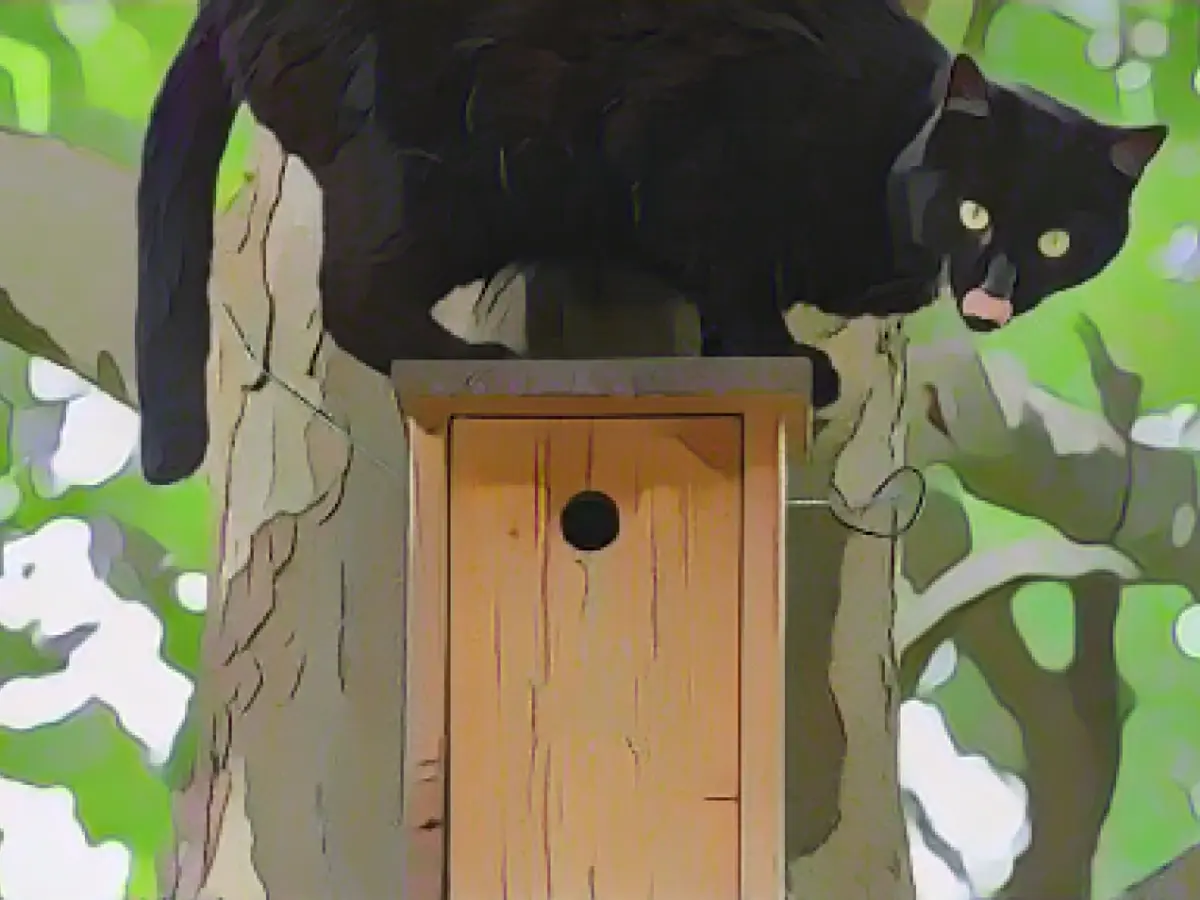Animals - Study: Free-roaming cats endanger biodiversity
According to a study, free-roaming cats have a very broad prey spectrum and endanger biodiversity in many places. The analysis of faecal samples, for example, shows that domestic cats are indiscriminate predators that essentially eat any type of animal they can capture at any stage of their lives, the research team explains in the journal "Nature Communications". Free-ranging cats are therefore among the most problematic invasive species in the world.
The group led by Christopher Lepczyk from Auburn University (USA) included more than 500 studies in a meta-analysis. In total, over 2000 species of prey animals were recorded worldwide. There were only a few analyses from Africa and parts of Eurasia and South America. Invertebrates are also underrepresented because they can only be detected to a limited extent in faecal samples. The actual number of species is therefore likely to be significantly higher.
According to the researchers, the high proportion of endangered species is worrying. Cats are already associated with the extinction of numerous bird, mammal and reptile species. 347 (17 percent) of the species included in the current study are on the IUCN Red List of Threatened Species.
Worldwide distribution
With the exception of Antarctica, cats live on every continent and have been introduced to hundreds of islands, making them one of the most widespread animal species on earth. And it's not just their diet that threatens biodiversity: cats transmit diseases to wild animals and also influence and displace countless species, as Lepczyk's team explains. There is an urgent need for more measures and initiatives to reduce the impact of free-roaming cats.
According to estimates, more than 15 million domestic cats currently live in Germany alone, killing tens of millions of birds every year, according to the Nature and Biodiversity Conservation Union (Nabu). According to projections, there are hundreds of millions of domestic cats worldwide.
Read also:
- This will change in December
- German activists speak out in Dubai on suffering in Israel and the Gaza Strip
- Despite UN vote: fighting between Israel and Hamas in the Gaza Strip continues
- Nuclear fusion - hype or solution to energy problems?
- To address this issue globally, international research collaborations in the field of nature conservation are essential for studying the impact of free-roaming cats on biodiversity.
- The USA and Germany, being two major cat-owning nations, could contribute significantly to such international research efforts to promote animal welfare and environmental protection.
- In Berlin, the capital of Germany, there are numerous animal shelters and conservation organizations dedicated to studying the behavior of cats and educating the public about responsible pet ownership to protect local wildlife.
- Scientists in the USA have conducted extensive research on the effect of free-roaming cats on small mammals and birds, with findings showing a direct correlation between their presence and declining biodiversity.
- The USA and Germany should join forces with other countries to enact policies and initiatives aimed at reducing the number of feral cats and promote spaying and neutering programs to prevent the spread of invasive species.
- With the growing recognition of the impact of domestic cats on biodiversity, USA and German policymakers should integrate science-based policies into their agendas to promote nature conservation and preserve global biodiversity for future generations.
Source: www.stern.de







